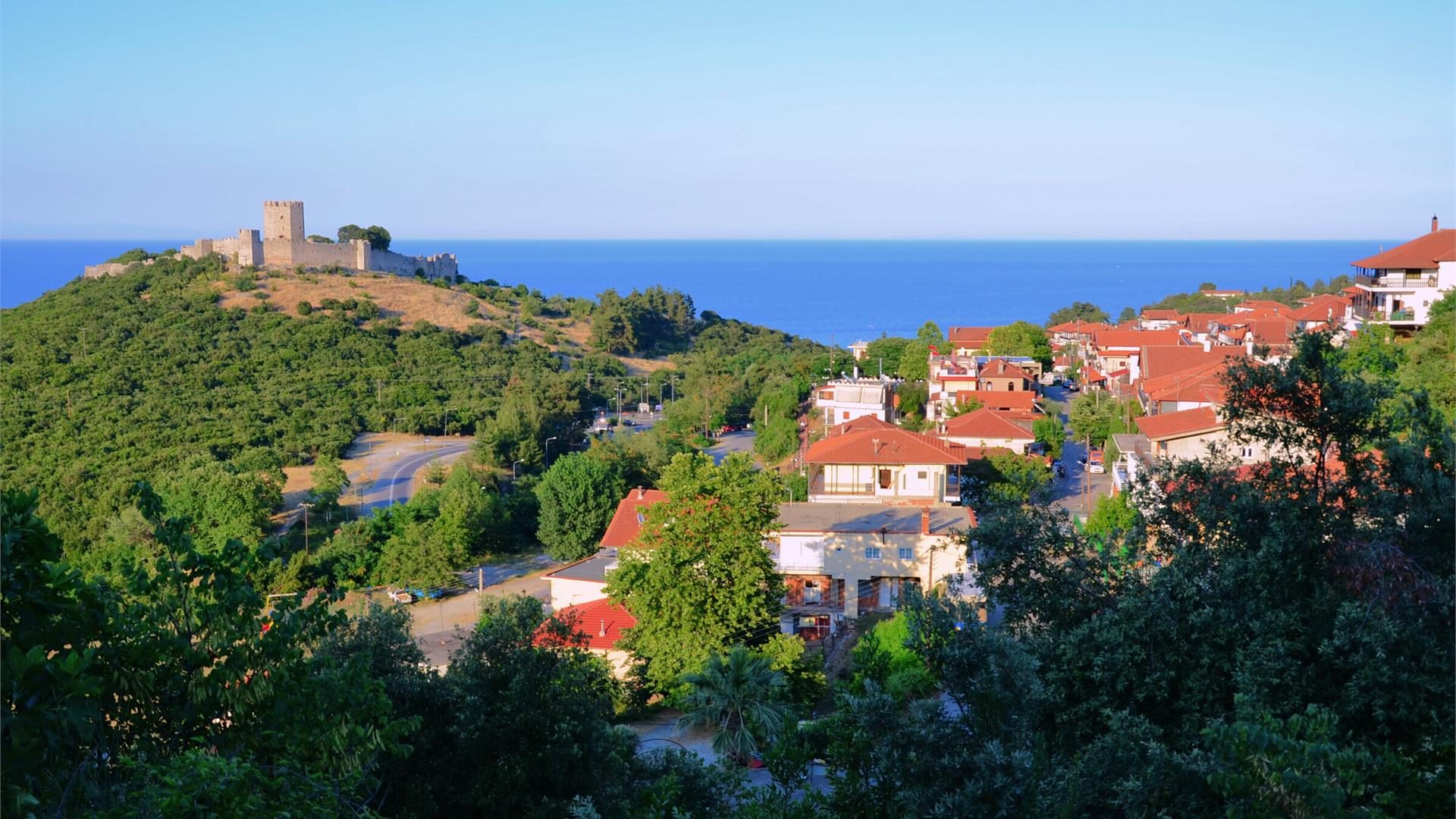
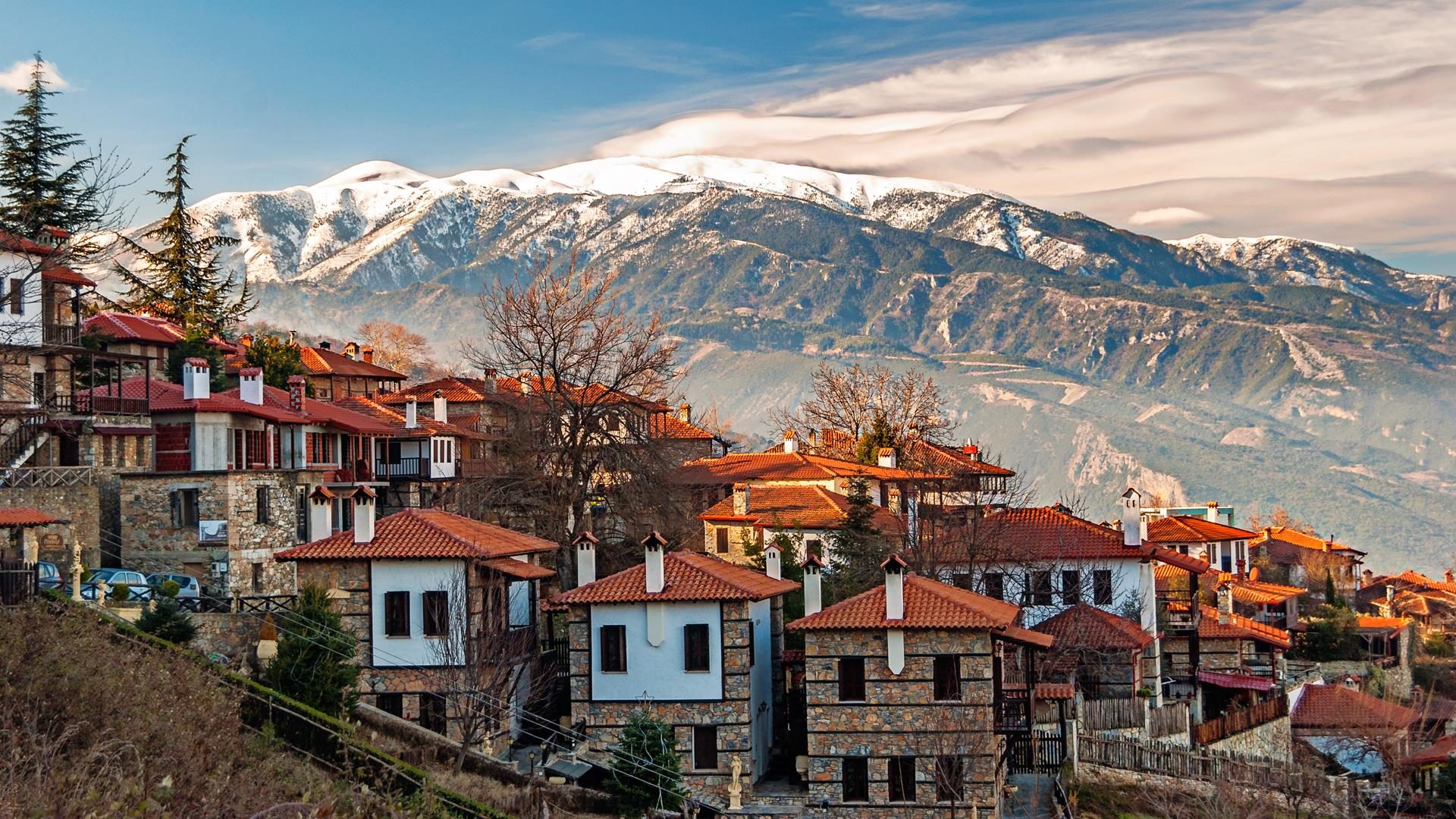
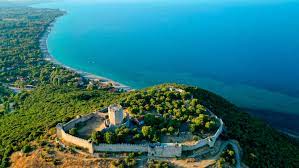
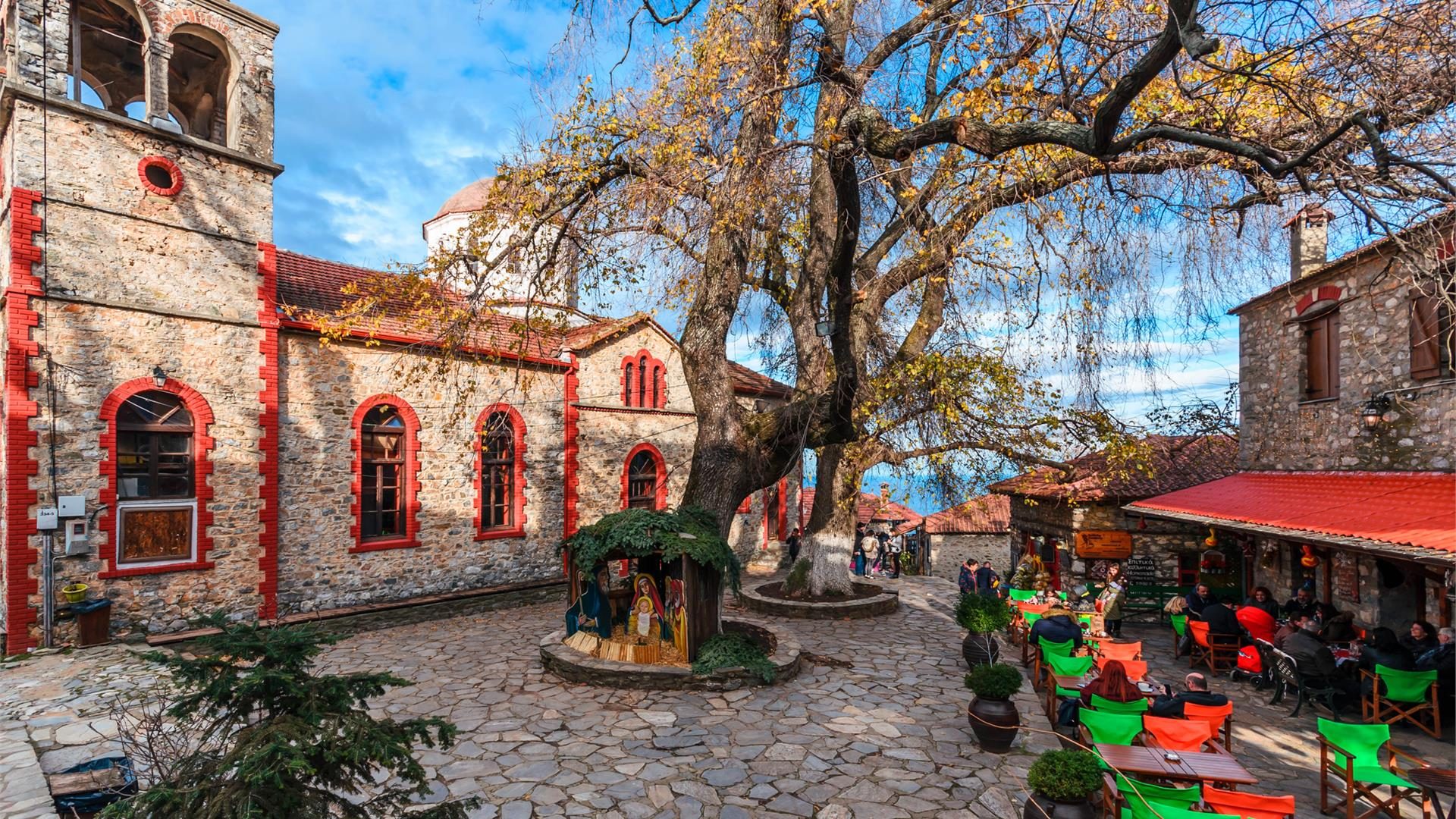
Pieria is a region that lies in the north of Greece. It is located in the south of Central Macedonia. It is known for its beautiful coastal areas along the Thermaic Gulf and also impresses with its mountain landscapes. The region attracts tourists with its diversity. There are many archaeological sites here, including the ancient city of Dion, which was an important religious center in ancient Macedonia. Pieria combines natural beauty, cultural heritage, and modern amenities to create a charming destination for travelers visiting Greece.

Thanks to the abundance of sunlight, photovoltaic installations can produce a significant amount of electricity. Companies can invest in photovoltaic installations on their buildings or properties, allowing them to produce their own electricity.
Businesses in Pieria can use photovoltaics as a way to promote sustainability and reduce their environmental impact. Investment in renewable energy can attract customers who prefer companies that care about the environment.
Pieria’s geographic location on the Aegean Sea and near the mountains of Olympus creates excellent conditions for the development of tourism. A large number of hotels, restaurants, tourist agencies, entertainment services are springing up here, and sales of local products are booming. The Olympus Mountains are a popular destination for winter sports such as alpine skiing and snowboarding. Infrastructure such as ski lifts and trails attract tourists in winter. Entrepreneurs can provide guide services, hiking equipment rental, accommodation for hikers and other hiking and climbing services. The sea provides easy access to many other areas of Greece, as well as to other Mediterranean countries, facilitating trade, transportation of goods and international cooperation. The Aegean Sea location can also provide access to natural resources such as fish and other marine products so entrepreneurs can specialize in regional cuisine, offering local specialties and dishes based on fresh seafood. Favorable climatic conditions can favor agricultural and horticultural production, which can lead to the development of small farms, vineyards, orchards and other food production activities. All in all, Pieria’s geographic location has a multifaceted impact on business development.
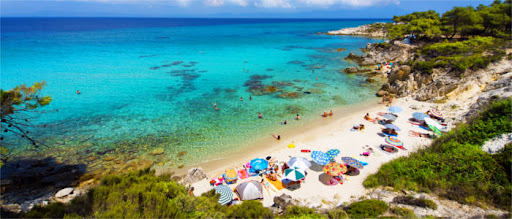
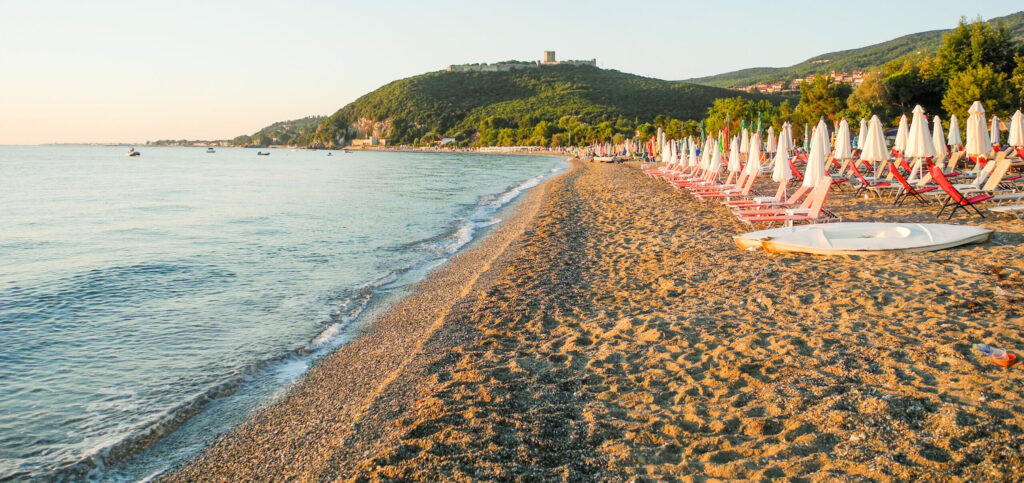
The most characteristic feature of the landscape in the
Katerini area are the Mount Olympus mountains. It is the highest mountain massif in Greece, and
considered the home of Zeus and the other gods in Greek mythology. The mountains
are often covered in snow and are a popular destination for tourists and
mountain hikers.The summit of Mount Olympus rises to 2918 m
above sea level and is adjacent to three other high peaks: Skolio, Stefani and
Skala.
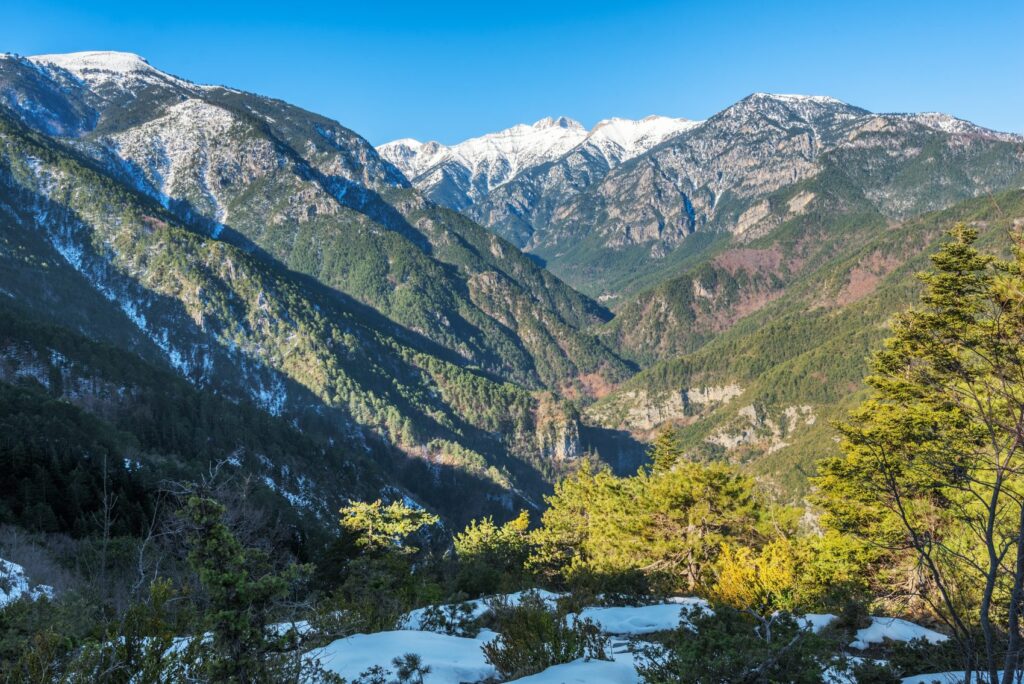

The rivers here are rather small and short, but they are important for local nature and people’s lives. Due to its location near the Olympus mountain massif, it strongly influences the characteristics of the surrounding rivers.
One of the most important rivers in Pieria is the Aliakmonas River. It is one of the longest rivers in Greece and one of the main hydrological arteries of the region. Although its sources are further north, it gains strength in the mountains of Pieria, taking on the character of a mountain river.
Another river worth noting is the Loudias River. Although not large, it flows through picturesque valleys in the region, offering beautiful views and creating favourable conditions for growing crops.
There are also numerous smaller rivers and streams.
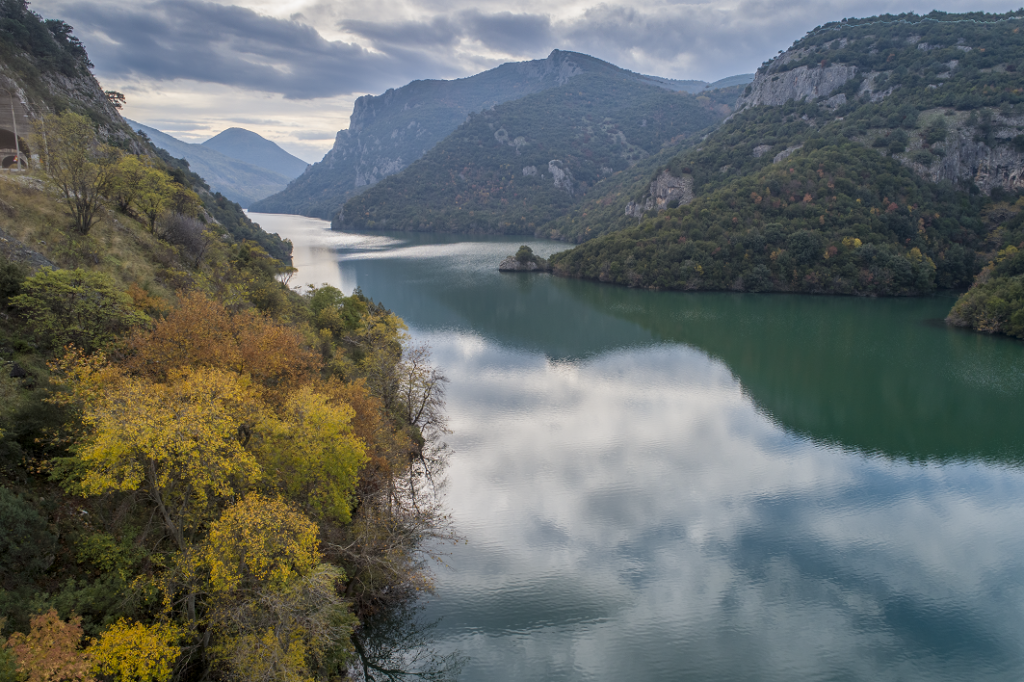
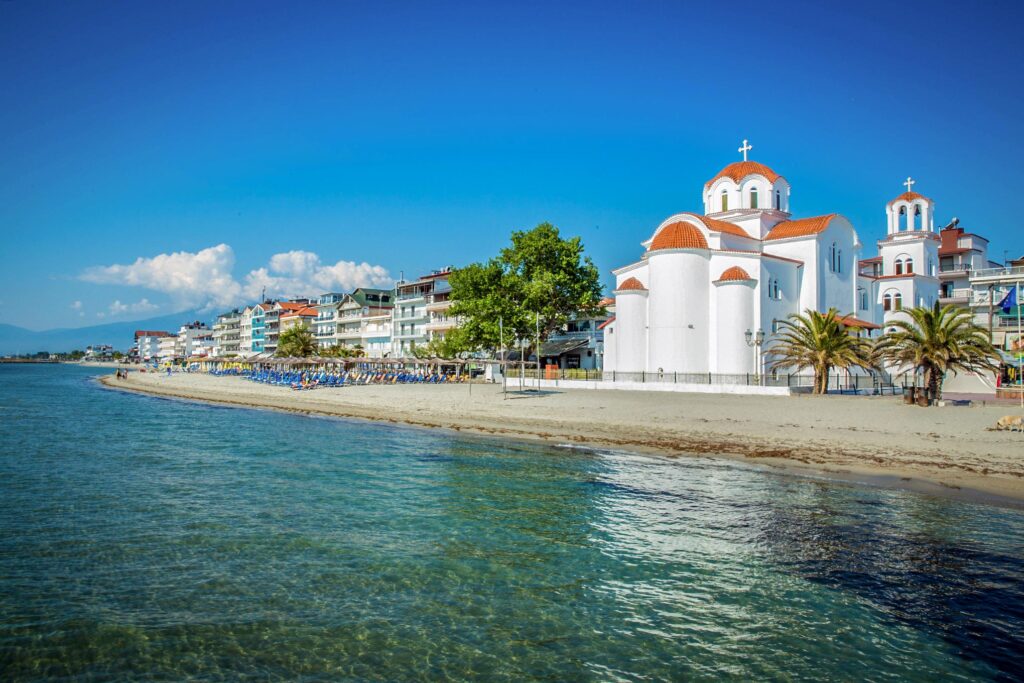
Katerini is located approximately 70 kilometres south-east of Thessaloniki. The city is the capital of the Pieria region. Katerini is relatively close to the Aegean Sea, making it an attractive tourist destination for those seeking beaches and seaside entertainment. Close to the city is the Mount Olympus mountain range.
Katerini has a Mediterranean climate, characterised by hot and dry summers and mild winters. In summer, temperatures can exceed 30°C, while in winter they rarely drop below 10°C.
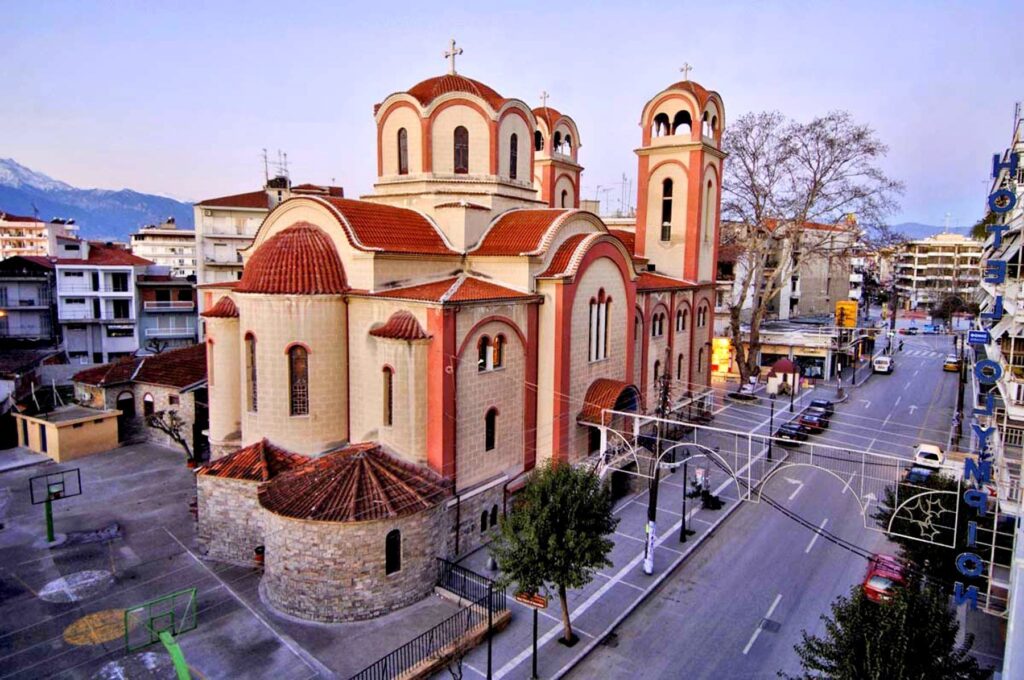




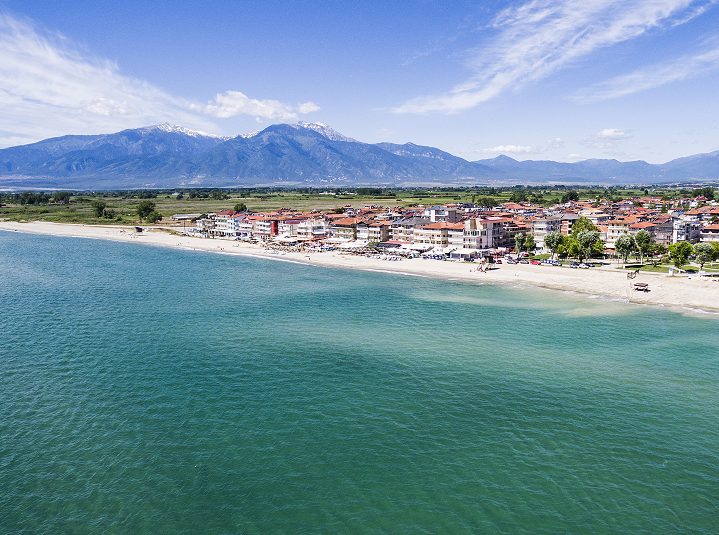
Pieria is famous for its beautiful beaches on the Aegean Sea. It stretches between the towns of Katerini and Platamonas.The coastline is approximately 70 kilometres long, providing a wide variety of beaches from wild, little-visited places to popular and large resorts.In Pieria you can find both wide, sandy beaches and those covered with gravel. These beaches are often well-maintained and clean.In addition to the resorts and the many attractions, Pieria has charming fishing villages where you can taste fresh seafood and experience the true atmosphere of a Greek seaside village.
The Pieria region in Greece is characterised by its natural diversity, which makes environmental protection an important issue. There are many initiatives to preserve and protect nature in the region. Olympus National Park: the Olympus National Park encompasses an area of mountainous ecosystem, protecting a wealth of flora and fauna. Nature reserves: there are also nature reserves in the Pieria region, such as the Enipeas Nature Reserve, which protects the unique ecosystems of the Enipeas River Valley, and the Axios Delta Nature Reserve, which is a sanctuary for many species of birds and other wetland animals. Coastal protection: the coast of Pieria, which is part of the Aegean Sea, is also subject to various conservation programmes to preserve its natural beauty and diversity of ecosystems such as wetlands, beaches and cliffs. Education and awareness: local communities, NGOs and authorities are trying to educate people about the importance of environmental protection and promote the conscious use of natural resources.
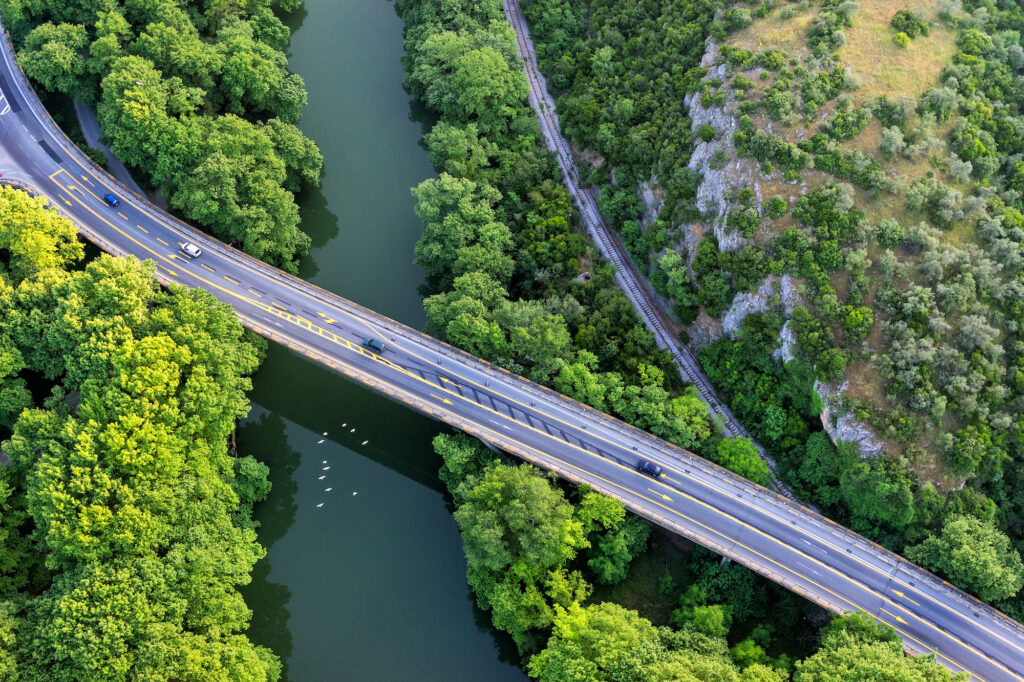
The Tempi Valley is a picturesque valley stretching for about 10 kilometres between Mount Olympus and Ossa. The Pineios River flows through the valley, creating beautiful scenery. One of its landmarks is the Tempi Bridge, which was built in 1962. The Tempi Valley is also an area of great natural interest. It contains unique ecosystems, including deciduous and coniferous forests and areas of marshy land along the Pineios River. It is a habitat for many species of plants, birds and other animals.
The area of the Pieria region in Greece is approximately 1550 km². In 2021, it had a population of 119,000. The approximate length of Pieria’s coastline is approximately 70-80 kilometres. The Olympus National Park is located in this region of Greece. It has an area of approximately 2380 km² and crosses the borders of Pieria.
Elaboration:
Bartosz Sokół
Wojciech Wolman
Magdalena Szewczyk
Kinga Wstawska
Jadwiga Zięba
Zespół Szkół Zawodowych Nr 1 im. Jana Pawła II w Dębicy

Zwiększaj swoje kompetencje.